 Amazon recently began to offer same-day delivery in selected metropolitan areas. This may be good for many customers, but the rollout shows how computerized decision-making can also deliver a strong dose of discrimination.
Amazon recently began to offer same-day delivery in selected metropolitan areas. This may be good for many customers, but the rollout shows how computerized decision-making can also deliver a strong dose of discrimination.
 What would your ideal robot be like? One that can change nappies and tell bedtime stories to your child? Perhaps you’d prefer a butler that can polish silver and mix the perfect cocktail?
What would your ideal robot be like? One that can change nappies and tell bedtime stories to your child? Perhaps you’d prefer a butler that can polish silver and mix the perfect cocktail?
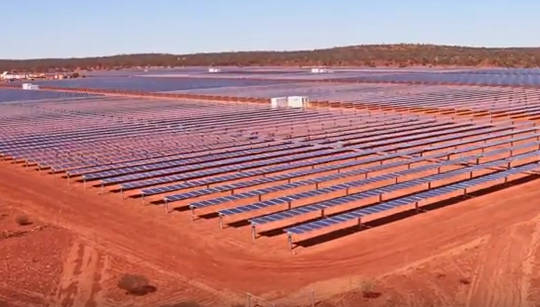 Recently Sandfire Resources, a gold and copper producer based in Western Australia, announced its new solar power plant will soon start powering its DeGrussa mine. By replacing diesel power, the 10-megawatt power station, with 34,000 panels and lithium storage batteries, is expected to reduce the mine’s carbon emissions by 15%.
Recently Sandfire Resources, a gold and copper producer based in Western Australia, announced its new solar power plant will soon start powering its DeGrussa mine. By replacing diesel power, the 10-megawatt power station, with 34,000 panels and lithium storage batteries, is expected to reduce the mine’s carbon emissions by 15%.
 Would you want to alter your future children’s genes to make them smarter, stronger or better-looking?
Would you want to alter your future children’s genes to make them smarter, stronger or better-looking?
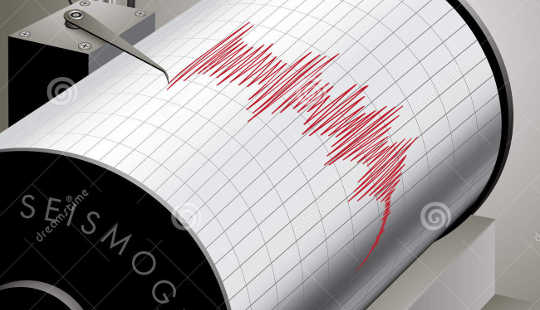 The director of the Southern California Earthquake Center, Thomas Jordan, made an announcement recently that would have sent a chill down the spine of every Californian: that the San Andreas fault appears to be in a critical state and as such, could generate a large earthquake imminently.
The director of the Southern California Earthquake Center, Thomas Jordan, made an announcement recently that would have sent a chill down the spine of every Californian: that the San Andreas fault appears to be in a critical state and as such, could generate a large earthquake imminently.
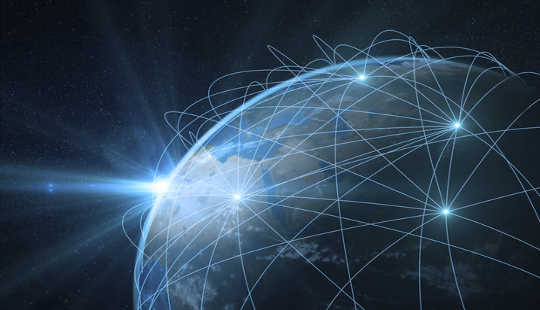 The irony of internet freedom was on full display shortly after midnight July 16 in Turkey when President Erdogan used FaceTime and independent TV news to call for public resistance against the military coup that aimed to depose him.
The irony of internet freedom was on full display shortly after midnight July 16 in Turkey when President Erdogan used FaceTime and independent TV news to call for public resistance against the military coup that aimed to depose him.
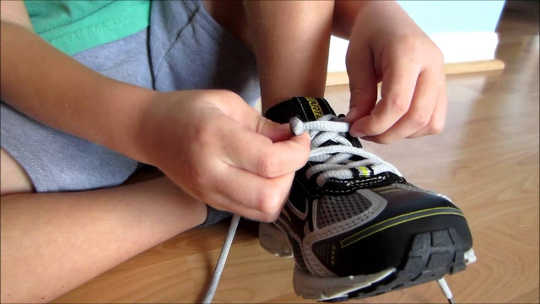 When children learn how to tie their shoelaces, they do so in discrete steps—making a loop or tugging at the lace. After enough repetition, our brain turns these steps into “chunks.”
When children learn how to tie their shoelaces, they do so in discrete steps—making a loop or tugging at the lace. After enough repetition, our brain turns these steps into “chunks.”
 Research shows that a student’s genetic makeup can have a strong influence on their academic performance.
Research shows that a student’s genetic makeup can have a strong influence on their academic performance.
 We live, we are so often told, in an information age. It is an era obsessed with space, time and speed, in which social media inculcates virtual lives that run parallel to our “real” lives and in which communications technologies collapse distances around the globe.
We live, we are so often told, in an information age. It is an era obsessed with space, time and speed, in which social media inculcates virtual lives that run parallel to our “real” lives and in which communications technologies collapse distances around the globe.
 The smartphone in your hand enables you to record a video, edit it and send it around the world. With your phone, you can navigate in cities, buy a car, track your vital signs and accomplish thousands of other tasks. And so?
The smartphone in your hand enables you to record a video, edit it and send it around the world. With your phone, you can navigate in cities, buy a car, track your vital signs and accomplish thousands of other tasks. And so?
 Mobile phone data may reveal an underlying mathematical connection between how we move and how we communicate. This could make it easier to predict how diseases—and even ideas—spread through a population.
Mobile phone data may reveal an underlying mathematical connection between how we move and how we communicate. This could make it easier to predict how diseases—and even ideas—spread through a population.
 Accidents, natural disasters and random or targeted attacks can cripple human infrastructure. Our transportation networks, supply chains and communication networks are increasing in size and becoming more complex as our populations grow.
Accidents, natural disasters and random or targeted attacks can cripple human infrastructure. Our transportation networks, supply chains and communication networks are increasing in size and becoming more complex as our populations grow.
 "Our theory explains specifically why primates developed superintelligence but dinosaurs—who faced many of the same environmental pressures and had more time to do so—did not. Dinosaurs matured in eggs, so there was no linking between intelligence and infant immaturity at birth," says Celeste Kidd.
"Our theory explains specifically why primates developed superintelligence but dinosaurs—who faced many of the same environmental pressures and had more time to do so—did not. Dinosaurs matured in eggs, so there was no linking between intelligence and infant immaturity at birth," says Celeste Kidd.
 It was 1986, and the American space agency, NASA, was reeling from the loss of seven lives. The space shuttle Challenger had broken apart about one minute after its launch.
It was 1986, and the American space agency, NASA, was reeling from the loss of seven lives. The space shuttle Challenger had broken apart about one minute after its launch.
 From the transforming discovery of penicillin to the theories of relativity and quantum mechanics, science progressed with mind-boggling speed even before there were computers. Much of this is down to the robustness of the scientific method: scientific results are validated by being replicated and extended by other scientists.
From the transforming discovery of penicillin to the theories of relativity and quantum mechanics, science progressed with mind-boggling speed even before there were computers. Much of this is down to the robustness of the scientific method: scientific results are validated by being replicated and extended by other scientists.
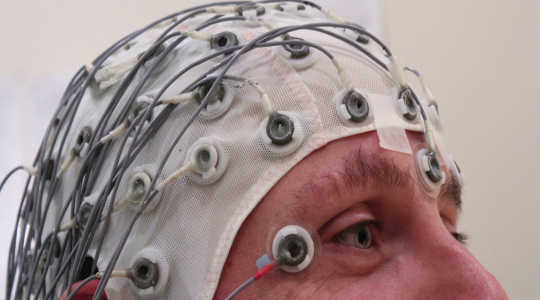 In the hours since I first sat down to write this piece, my laptop tells me the National Basketball Association has had to deny that it threatened to cancel its 2017 All-Star Game over a new anti-LGBT law in North Carolina – a story repeated by many news sources including the Associated Press.
In the hours since I first sat down to write this piece, my laptop tells me the National Basketball Association has had to deny that it threatened to cancel its 2017 All-Star Game over a new anti-LGBT law in North Carolina – a story repeated by many news sources including the Associated Press.
 Ask around – everyone has an opinion about their email and their inbox, and it’s not always positive. From information overload, zero inbox and leaked email scandals to the much-hyped triumph of workflow software like Slack and Asana, email has certainly had a bad rap recently.
Ask around – everyone has an opinion about their email and their inbox, and it’s not always positive. From information overload, zero inbox and leaked email scandals to the much-hyped triumph of workflow software like Slack and Asana, email has certainly had a bad rap recently.
 Given its huge success in describing the natural world for the past 150 years, the theory of evolution is remarkably misunderstood. In a recent episode of the Australian series of “I’m a Celebrity Get Me Out of Here”, former cricket star Shane Warne questioned the theory – asking “if humans evolved from monkeys, why haven’t today’s monkeys evolved”?
Given its huge success in describing the natural world for the past 150 years, the theory of evolution is remarkably misunderstood. In a recent episode of the Australian series of “I’m a Celebrity Get Me Out of Here”, former cricket star Shane Warne questioned the theory – asking “if humans evolved from monkeys, why haven’t today’s monkeys evolved”?
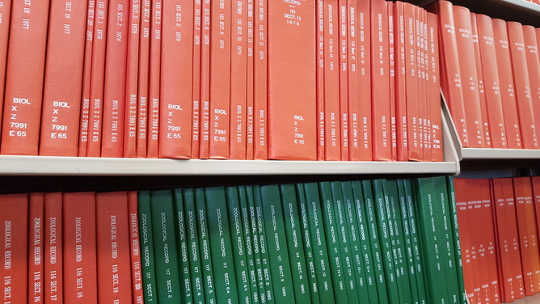 Extra, extra! The embargo’s lifted, read all about it. Rumors were flying through the blogosphere this winter: physicists at the Advanced Laser Interferometer Gravitational-Wave Observatory (LIGO) may finally have directly detected gravitational waves, ripples in the fabric of space-time predicted by Einstein 100 years ago in his general theory of relativity. Gravitational waves were predicted to be produced by cataclysmic...
Extra, extra! The embargo’s lifted, read all about it. Rumors were flying through the blogosphere this winter: physicists at the Advanced Laser Interferometer Gravitational-Wave Observatory (LIGO) may finally have directly detected gravitational waves, ripples in the fabric of space-time predicted by Einstein 100 years ago in his general theory of relativity. Gravitational waves were predicted to be produced by cataclysmic...
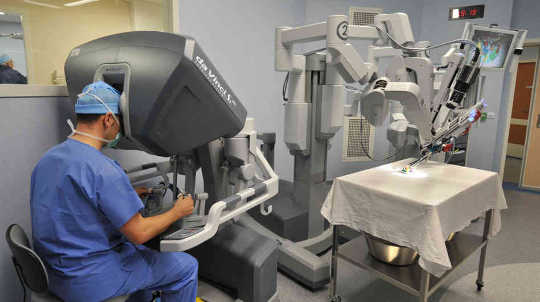 Imagine your child requires a life-saving operation. You enter the hospital and are confronted with a stark choice. Do you take the traditional path with human medical staff, including doctors and nurses, where long-term trials have shown a 90% chance that..
Imagine your child requires a life-saving operation. You enter the hospital and are confronted with a stark choice. Do you take the traditional path with human medical staff, including doctors and nurses, where long-term trials have shown a 90% chance that..
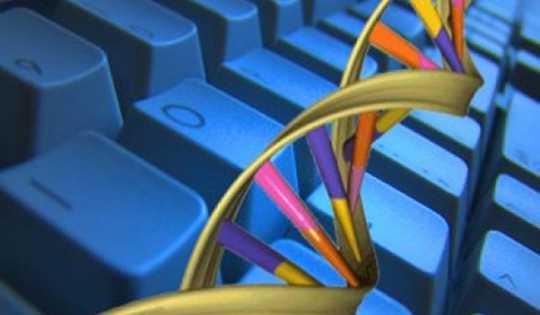 Once the three-billion-letter-long human genome was sequenced, we rushed into a new “omics” era of biological research. Scientists are now racing to sequence the genomes (all the genes) or proteomes (all the proteins) of various organisms – and in the process are compiling massive amounts of data.
Once the three-billion-letter-long human genome was sequenced, we rushed into a new “omics” era of biological research. Scientists are now racing to sequence the genomes (all the genes) or proteomes (all the proteins) of various organisms – and in the process are compiling massive amounts of data.
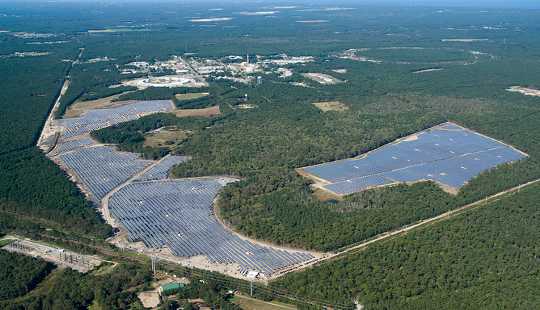 Any long-term solution will require “decarbonizing” the world energy economy – that is, shifting to power sources that use little or no fossil fuel.
Any long-term solution will require “decarbonizing” the world energy economy – that is, shifting to power sources that use little or no fossil fuel.
 Through pressure from Google, Facebook, and other major providers such as Yahoo and Apple the world wide web is slowing becoming more secure, with web services using HTTPS to encrypt web traffic by default.
Through pressure from Google, Facebook, and other major providers such as Yahoo and Apple the world wide web is slowing becoming more secure, with web services using HTTPS to encrypt web traffic by default.













